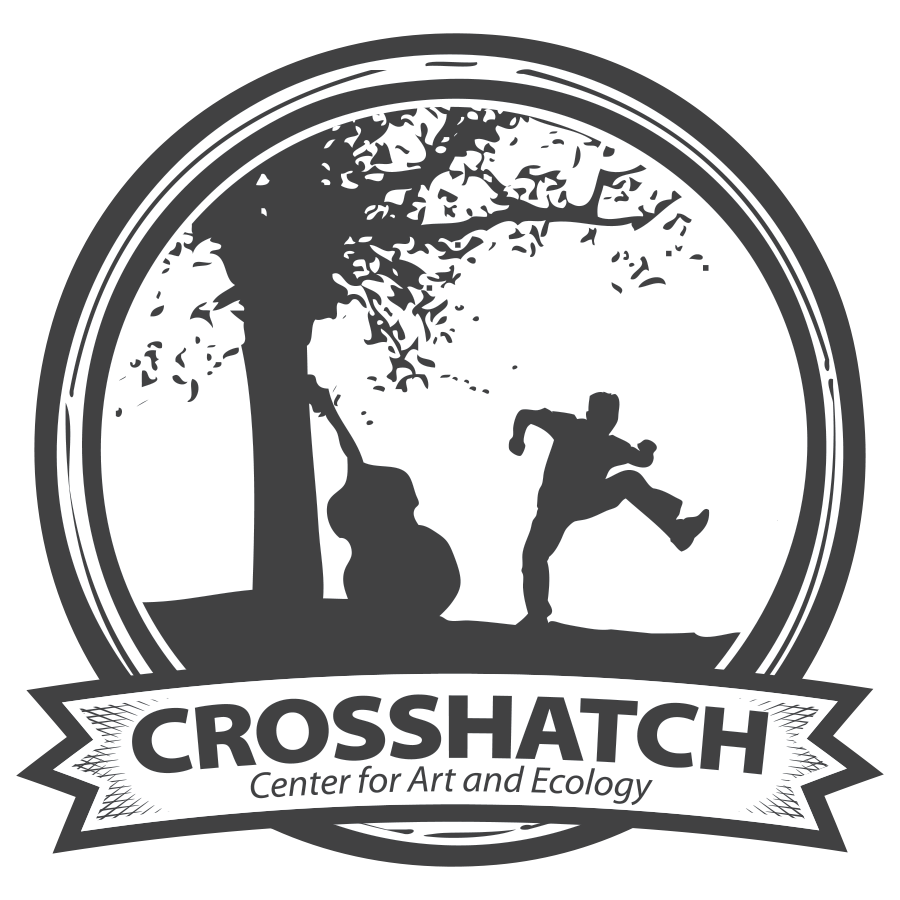Volume 2 • No. 13 • Full Moon • July 3rd, 2023
Ceramic • 2023 • Annie Comperchio, Good June Ceramics
In This Issue: The Best Tool for Soil Health, Honoring Roadkill, Rufus Snoddy, and the Father of the Green Revolution.
The Best Tool for Soil Health: An Empty Bank Account
Our last newsletter featured a writing that praised the virtues of investing energy into prototyping—creating models that work. Paul May’s pasture operation is an example.
Maybe you scanned over the written distillation of Paul’s DIY rotational grazing musings, heard the audio version, or caught this little teaser. Rounding things out, here’s the full video workshop, or at least as much of Paul May and friends as we were able to capture the day of the event. Click above to watch now, or save for rainy day viewing. Enjoy!
The Warp — Ideas and Inspiration
|| 1 || We’re expecting a little one soon, our second kiddo, so this will be the last newsletter with my fingerprints on it for a time. Brad’s taking the helm, so look forward to more Kik-like Crosshatch-centric content from him!
|| 2 || Art, beauty, ritual, meaning, and biology. Here’s an unexpected and soberingly beautiful place where all five of those meet: honoring roadkill.
The article travels from rates of animal-vehicle collisions, citing statistics from Michigan involving deer, to considering our responses, or lack of response, as we drive past still bodies littering roads.
It also points to Amanda Stronza, a Texas A&M professor and anthropologist, who has been shaping these roadside sites into elegant natural memorials using flowers, brush, and leaves. Her mandala-like work draws attention to the creatures and mortality. She honors them, and creates memory and meaning in the face of what seems to be meaningless attrition that we don’t have time for, while leaving the bodies to nurture the cyclical ecosystems they belong to. Her practice gets to the core of lasting quandaries and questions despite its ephemeral nature—it compels us to slow down, and consider the impact of our actions upon the more-than-human world.
These are some of the same themes that Barry Lopez (whose book Apologia inspired Stronza’s practice) and Aldo Leopold dwelt upon in the past. The following words from Leopold’s “A Sand County Almanac” essay “Thinking Like a Mountain” speak to the same power that consideration of, and presence with, dead and dying animals carries. It’s like the “I’m sorry” and the “Thank you” stitched together and offered while taking the life of a chicken for sustenance. “Being-with-ness” forms a connection, and it changes us.
“We reached the old wolf in time to watch a fierce green fire dying in her eyes. I realized then, and have known ever since, that there was something new to me in those eyes—something known only to her and to the mountain. I was young then, and full of trigger-itch; I thought that because fewer wolves meant more deer, that no wolves would mean hunters’ paradise. But after seeing the green fire die, I sensed that neither the wolf nor the mountain agreed with such a view.”
— Aldo Leopold, A Sand County Almanac, 1949.
|| 3 || Speaking of rituals, environments, and their ability to shape, here’s an audio visit with Northern Michigan sculptor and painter Rufus Snoddy. He talks about his chosen mediums, the need for artistic freedom, his interest in illusion and perception, positive rituals versus ugly rituals like racism, what spurred his interest in trompe l'œil, and more. Snoddy’s work was recently featured at the Alluvion in the Commongrounds building, and soon will be featured at the Crooked Tree Arts Center in Traverse City, along with pieces from Glenn Wolff, Angela Saxon and Royce Deans. The opening reception of Reflections Between Conversations at CTAC will be held July 8th, at 5pm. You can also check here for information on other artists who have been featured at Commongrounds, or are being featured at Alluvion Arts @ 414.
|| 4 || A good friend and I met for the first time in a farmer training program in Alaska. The program was geared mainly towards ecologically-minded, small farming methods. He came from a large-scale, commodity agriculture background, and wasn’t in Alaska to be converted, but to glean wisdom that could aid larger farm operations and improve their land treatment. Conversations with him were always helpful in calling out my own biases.
Nobel Peace prize winning agronomist Norman Borlaug, the father of the Green Revolution, once said: “Some of the environmental lobbyists of the Western nations are the salt of the earth, but many of them are elitists. They've never experienced the physical sensation of hunger. They do their lobbying from comfortable office suites in Washington or Brussels. If they lived just one month amid the misery of the developing world, as I have for fifty years, they'd be crying out for tractors and fertilizer and irrigation canals and be outraged that fashionable elitists back home were trying to deny them these things.”
Those are humbling words. They don’t shift my thoughts on the necessity of reining in data-driven, input-intensive, consolidated food systems. Still, like my friend Dan, they remind me to respect the complexity in conversations like these, to stay honest, and to prioritize concrete realities above easy answers.
The Weft — News and Events
|| 1 || New Summer Twilight Tours are Live! Click the links for more information and registration.
July 13th: Resilient bounty: Conservation and diversification for ecological and economic abundance. 6-8pm, in Frankfort, MI.
July 25th: Buckwheat, Bees, Bacon, and Barley: Small-scale row crops, on-farm livestock, and cover cropping. 6-8pm, in Charlevoix, MI.
|| 2 || Heritage Breed Microgrant. The Livestock Conservancy has an array of microgrants now open for applications until August. If you work with heritage livestock or poultry, it’s likely worth a perusal to see if any of the categories might fit the needs of your operation. Information available here.
|| 3 || July Happenings at The Alluvion. Did you know that the Alluvion is more than a music venue and performance space? It’s also home to revolving visual and audio-centric arts exhibitions. Check out the Alluvion Arts @ 414 webpage for more information. And while you’re there, you can peruse the list of upcoming performances. This isn’t the first time it’s been said, and it won’t be the last—there are a lot of fantastic opportunities to experience great music and events at the Alluvion this month, whatever your tastes.
|| 4 || You might be wondering what’s happening with the Northern Michigan Small Farm Conference. There’s too much to detail here as we work things out, but we’re excited to be back with all of you in person on Monday, August 14th! We’re looking at featuring:
More hands-on learning
On-the-ground demonstrations
Fresh local foods meals
Networking opportunities
Click here to check out the latest on what’s happening, and watch for more news in upcoming months.
sponsored by:
Desmond Liggett Wealth Advisors is a mission-driven, fee-only wealth management company with a simple purpose: to generate exceptional value for the individuals, families, small business owners, and non-profit organizations they serve. Desmond Liggett Wealth Advisors believe in and adhere to triple-bottom-line analysis for portfolio investments, ensuring that they review how a company’s environmental and social values impact its long-term resilience and, consequently, value.
Many thanks to the Michigan Arts & Culture Council and the National Endowment for the Arts for their support of this work.
Crosshatch’s The Whole Field is a biweekly newsletter. We aim to provide content that’s engaging, thought-provoking, and worth your time. If you’ve been forwarded this email, and want to receive future editions, click here to subscribe to our mailing list or view previous editions.
We also envision this best as a collaborative work. If you have any suggestions, leads or feedback, we appreciate your reply directly to this email.
Copyright (C) 2023 Crosshatch. All rights reserved.











